Prevent Vernon Plant Loss: Summer Lifecycle Care Secrets
Quick Summer Survival Guide
- Water Wisely: Deep, infrequent watering is key. Check soil moisture before watering.
- Mulch Matters: Apply organic mulch to retain moisture and cool roots.
- Feed Appropriately: Use fertilizers cautiously, especially during heatwaves.
- Scout Regularly: Inspect plants often for pests and diseases.
- Tidy Up: Deadhead spent blooms and remove weeds and debris.
- Need Help? Professional garden care can save struggling plants. Request a quote today!
Struggling to keep your Vernon garden alive through the Ottawa summer? You're not alone! Let us help you achieve the lush landscape you deserve. Request Your Free Quote Now!
Introduction: Saying Goodbye to Summer Plant Woes in Vernon (and all of Ottawa!)
Okay, let's talk summer gardening in Ottawa. One minute you're enjoying the sunshine, the next your poor petunias look like they've wrestled a heatwave... and lost. Sound familiar? We've all been there. You pour your heart (and plenty of water!) into your garden, dreaming of gorgeous landscaping, only to find sad, droopy, or *crispy* plants come August. It’s particularly tough when you’ve nurtured your little green corner right here in Vernon! But guess what? These summer plant struggles aren't just a Vernon issue; gardeners from Manotick to Metcalfe, and right across the city, know this feeling too. Don't despair! This section is all about helping you say *goodbye* to the annual plant farewell tour. We’re sharing the 'lifecycle secrets' – the simple tricks and know-how – to keep your plants happy, healthy, and thriving right through the Ottawa heat. Get ready to relax and actually *enjoy* your beautiful garden this summer!
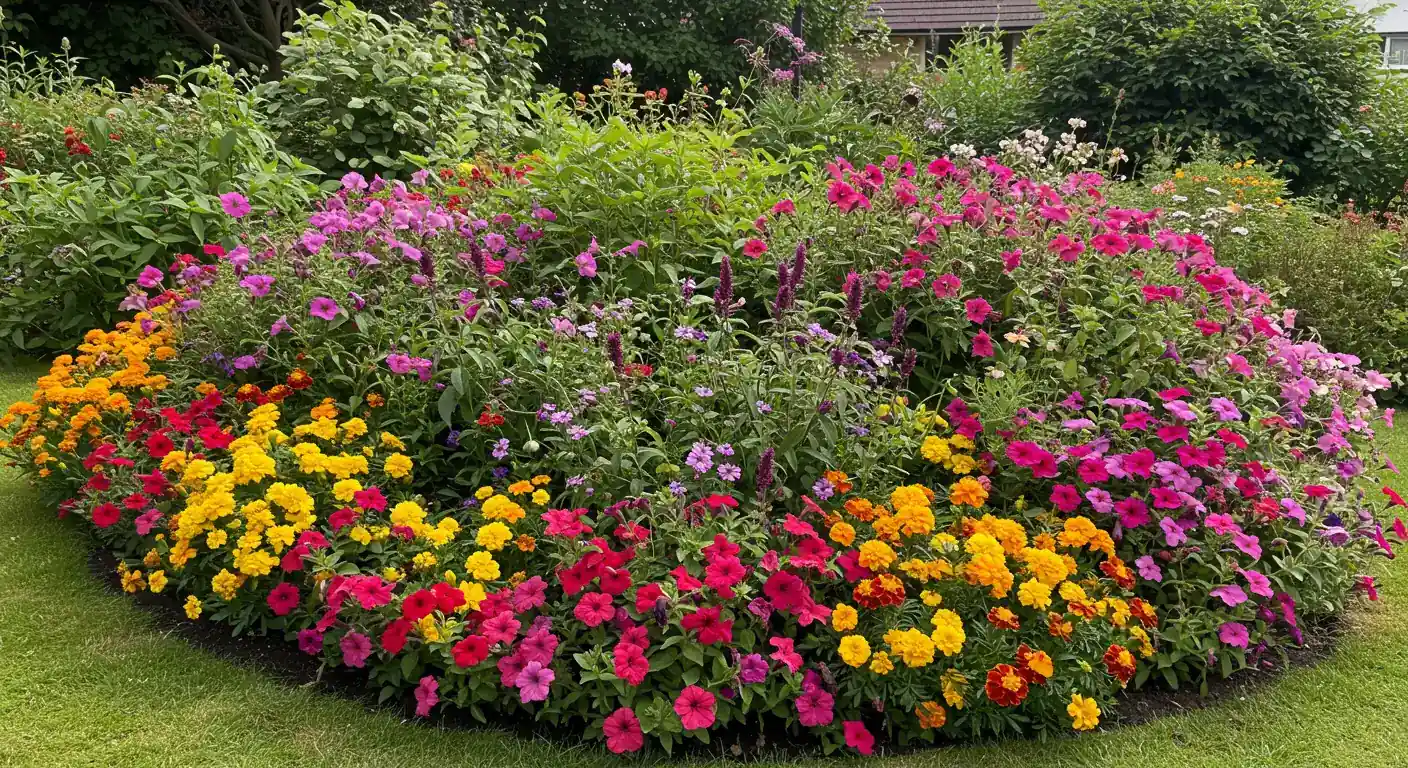
Decoding Ottawa's Summer: Climate, Critters, and Cranky Plants
Okay, let's pull back the curtain on Ottawa's summer, shall we? It's a fantastic season, but let's be honest, it can make our gardens a bit… dramatic. Understanding *why* your plants might be throwing a tantrum helps you keep them happy.
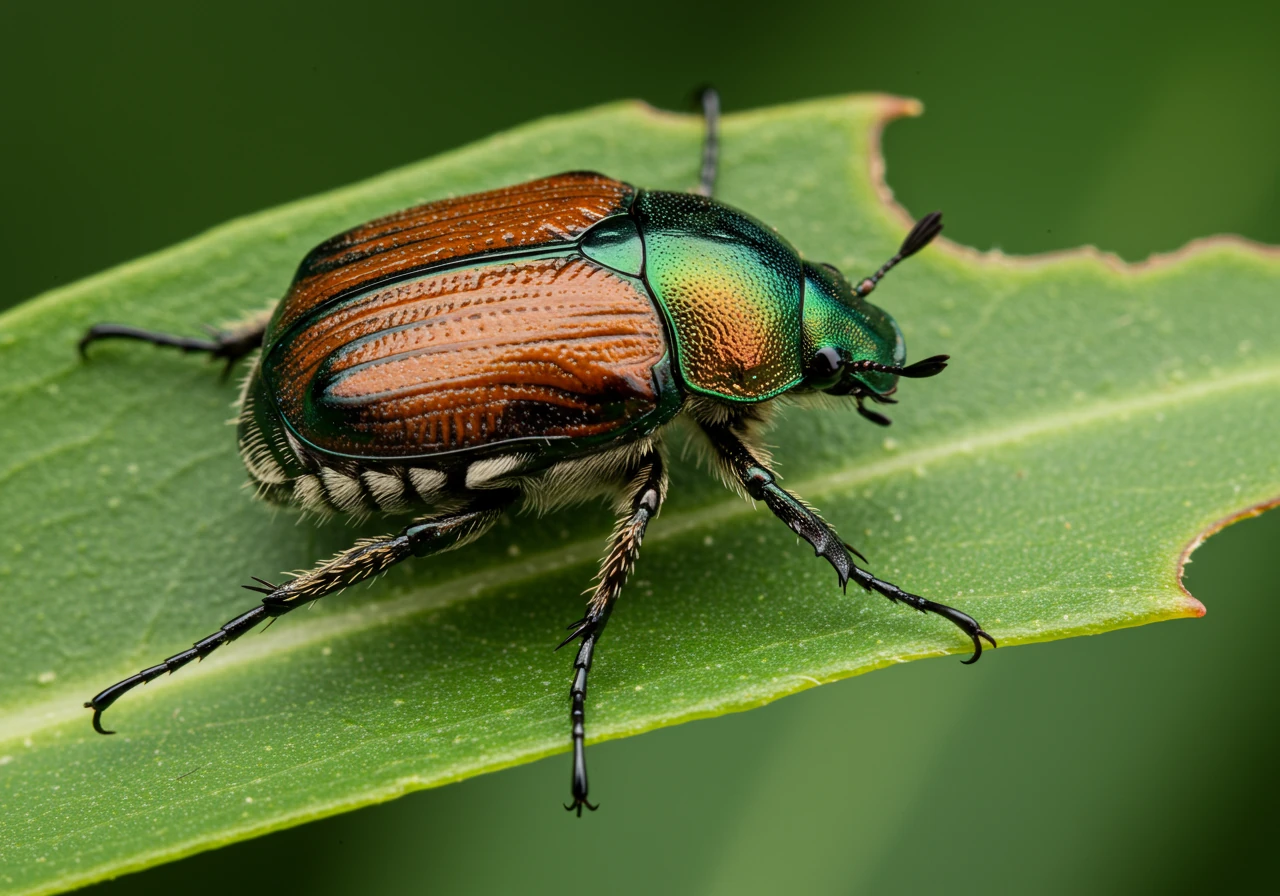
First up: the weather rollercoaster. One week, Ottawa feels like a sauna with humidity so thick you could slice it. The next, we might get a surprise downpour, followed by days of blazing sun that bake the soil dry. This inconsistency is tough on plants. They crave *predictable* moisture. Too much rain can lead to root rot or fungal diseases, while too little stresses them out, making them wilt and weaken. Deep, infrequent watering is often better than a daily sprinkle, encouraging stronger root growth. And speaking of water, inconsistent watering now might make you wish you had a reliable system you fully understood – thinking ahead about Osgoode sprinkler system care becomes important for year-round garden health, even if winter feels far away!
Then there's the dirt on our dirt. Depending on your neighbourhood, you might be gardening in heavy clay soil, common in areas around Kenmore, which holds water *forever* (hello, root rot!) or drains poorly after those downpours. Others might have sandier soil that dries out in a heartbeat. Improving your soil structure with compost is always a good idea. Understanding your specific soil challenges, like those discussed in tips for Kenmore shrub care and dealing with clay soil, is key. Adding a layer of mulch is also a superhero move – it helps retain moisture, keeps roots cooler, and suppresses weeds. Check out our mulching and edging services for a professional finish.
And who could forget the uninvited dinner guests? Summer brings out the critters. Japanese beetles can skeletonize rose bushes faster than you can say "oh no!" Aphids love setting up shop on tender new growth, and slugs appreciate the damp evenings. Fungal diseases like powdery mildew also love that humid air. Staying vigilant is crucial. Regularly inspect your plants (under leaves too!). Sometimes, a strong spray of water is enough for aphids, while other pests might need specific treatments. Catching problems early is why getting a professional eye on things, like understanding why a Metcalfe garden assessment can prevent summer loss, can be so valuable. Also, keeping your tools clean is *essential* to avoid spreading diseases between plants – seriously, check out these tips for keeping Greely garden tools sharp and clean to prevent disease spread.
Decoding Ottawa's summer gardening challenges means knowing what you're up against. With a little understanding of our climate, soil, and pesky visitors, plus the right care strategies (or knowing when to call for backup with our comprehensive landscaping services), you can help your plants survive *and thrive*.
The Thirst Quenchers: Smart Watering Strategies for Ottawa Summers
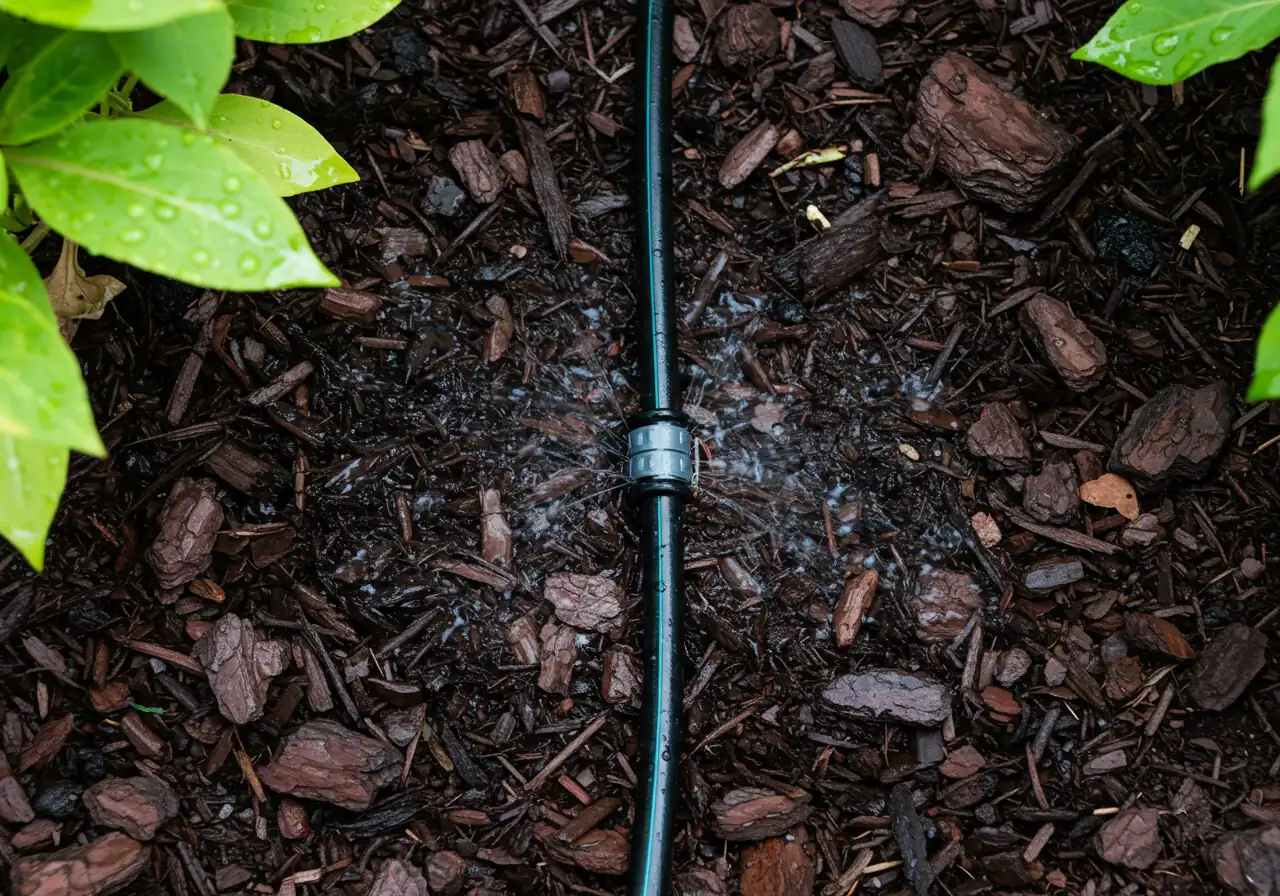
Ah, summer in Ottawa! Glorious, right? But also potentially *thirsty* work for our gardens. Keeping your plants happy when the heat cranks up doesn't mean drowning them daily. It's all about *smart* watering. Let's quench that thirst the clever way!
The Golden Rule: Deep and Infrequent
Forget giving your plants a quick daily splash. That just encourages shallow roots, making them wimpy and needy. Instead, think *long, slow drinks* less often. Water deeply enough to soak the soil 6-8 inches down. This encourages roots to grow deeper, seeking out moisture even when the surface is dry. How often? That depends on the weather, your soil, and your plants, but generally, a good soak once or twice a week during dry spells is better than a little sprinkle every day.
How Dry Am I? Checking Soil Moisture
Don't just guess! The best way to know if your plants need water is to check the soil.
- The Finger Test: Stick your finger about 2-3 inches into the soil near the plant's base. If it feels dry at that depth, it's time to water. If it's damp, hold off. Easy peasy!
- The Trowel Test: For a deeper check, gently dig down 4-6 inches with a small trowel and feel the soil.
Choosing Your Weapon: Watering Methods
Not all watering methods are created equal:
- Hand Watering: Great for containers or targeting specific thirsty plants. Can be relaxing! Downside: Time-consuming for large areas, easy to accidentally wet leaves (which can encourage disease).
- Sprinklers: Covers big lawns or garden beds easily. Downside: Can be inefficient – water evaporates on hot days or gets blown away. Also wets foliage. Best used early morning. Remember, keeping things tidy helps water reach the soil; consider essential property clean up tasks like removing thick thatch or debris.
- Soaker Hoses/Drip Irrigation: The efficiency champions! They deliver water slowly, directly to the root zone. Minimizes evaporation and keeps foliage dry. Downside: Initial setup takes effort. Perfect for vegetable gardens and established beds.
Different Strokes for Different Folks (or Plants!)
- Containers: Pots and hanging baskets dry out *much* faster than garden beds, especially terracotta ones. Check them daily, sometimes even twice on scorching Ottawa days, whether you're in Barrhaven or downtown.
- Garden Beds: Follow the deep-and-infrequent rule. Established perennials and shrubs generally need less frequent watering than annuals or new plantings.
Water Wisely: Eco-Friendly Tips
- Mulch is Your Friend: Apply a 2-3 inch layer of organic mulch (like shredded bark or compost) around your plants. It's like a cozy blanket that holds moisture in, keeps roots cool, and suppresses weeds. Keeping beds clear supports this, something our tidy up services like our Kenmore property cleanup service can assist with.
- Morning Glory: Water early in the morning (before 10 AM). Less water is lost to evaporation, and leaves have time to dry before nightfall, reducing disease risk.
- Catch the Rain: Install a rain barrel! It's free water for your plants. Ensure your gutters are clear to maximize collection – another benefit of effective property cleanup like our Metcalfe service.
- Right Plant, Right Place: Choose plants suited to Ottawa's climate and your specific garden conditions (sun, shade, soil type). Less stress means less water needed! If you need help assessing your space or choosing plants, consider professional landscaping help. Using timers or smart systems can help automate watering, just be mindful of any associated apps and data (you can always review our approach to privacy here). For information on local water conservation, check the City of Ottawa's Water Conservation page.
By adopting these smart watering strategies, you can keep your garden looking great all summer long, even when Ottawa brings the heat!
Feeding Frenzy: Fueling Your Plants Through the Growing Season
Think of your garden plants like athletes running a marathon all summer long. Blooming, growing fruits, pushing out new leaves – that takes a *ton* of energy! Just like we need food, our plants need nutrients from the soil to perform their best. But as the season progresses here in Ottawa, the readily available goodies in the soil can get used up, leaving your green pals feeling a bit peckish. That's where fertilizing comes in – it's like giving them a mid-season power bar!
But hold your horses! More isn't always better, especially during hot weather. Overdoing it can actually 'burn' plant roots, stressing them out even more. So, how do you feed them right?
First, let's decode those fertilizer bags. You'll usually see three numbers, like 10-10-10. This is the N-P-K ratio:
- N (Nitrogen): Think "Up!" – promotes lush, green leafy growth.
- P (Phosphorus): Think "Down and Around!" – helps with strong roots, flowers, and fruits.
- K (Potassium): Think "All Around Health!" – boosts overall plant vigour and resilience.
You'll find fertilizers in different forms:
- Granular: Little pellets you sprinkle on the soil. Often slow-release, feeding plants over time. Great for established beds and lawns. Healthy lawns are key, whether you're maintaining yours with regular lawn care or thinking about a fresh start with professional sod installation.
- Liquid: Mixed with water and applied directly. Plants absorb these quickly – good for a fast boost, especially for containers and annuals.
- Organic: Things like compost, well-rotted manure, or fish emulsion. These feed the soil *and* the plant, improving soil structure over time. A fantastic long-term choice! Choosing the right amendments is part of smart garden material selection.
How and When to Feed:
Always read the package instructions! Different plants have different needs.
- Annuals & Veggies: These heavy feeders often appreciate regular feeding (every few weeks with liquid, or as per slow-release instructions) throughout the summer.
- Perennials & Shrubs: Usually need less. A spring feeding might be enough, or perhaps a light mid-summer boost if they look tired.
- Lawns: Specific lawn fertilizers are best, applied according to directions (often spring and fall).
Pro Tips for Ottawa Gardeners:
- Water First: Apply fertilizer to moist soil, not bone-dry ground, and water it in well afterwards (unless it's a liquid feed).
- Avoid Midday Heat: Fertilize in the cooler morning or evening to reduce stress.
- Know Your Soil: Before going wild with fertilizer, consider a soil test. Especially in areas around Kars or Metcalfe where soil types can vary, knowing what nutrients are *actually* lacking prevents guesswork and saves money. Learn more about soil testing via the Ontario Ministry of Agriculture, Food and Rural Affairs (OMAFRA).
- Keep it Clean: Ensure fertilizer reaches the soil, not weeds or thick thatch. Keeping beds tidy is always helpful; if things get overwhelming, consider support like a Marionville property cleanup service to get things back in order. A clear space achieved through regular property clean up makes fertilizing easier and more effective. In fact, a tidy garden base makes *all* care simpler – why not ensure a clean slate before feeding with a thorough Marionville yard cleanup service?
Feeding your plants thoughtfully during the growing season helps them power through the Ottawa summer, rewarding you with vibrant blooms and bountiful harvests. Happy feeding!
Watering Best Practices
Remember: Water deeply (6-8 inches) but less frequently. Check soil moisture first using the finger test. Water early morning to minimize evaporation and allow foliage to dry. Use soaker hoses or drip irrigation for efficiency.
Key Ottawa Summer Pests
Be vigilant for: Aphids (small, sap-sucking insects on new growth), Japanese Beetles (metallic green/copper, skeletonize leaves), and Slugs/Snails (active in damp conditions, chew holes). Early detection and removal are crucial.
Common Garden Diseases
Watch for: Powdery Mildew (white dusty patches, loves humidity) and Fungal Leaf Spots (various spots/blotches). Improve air circulation through proper spacing and pruning. Remove affected leaves promptly. For expert advice, consider contacting the Master Gardeners of Ottawa-Carleton.
Pest Patrol & Disease Defense: Keeping the Bad Guys at Bay
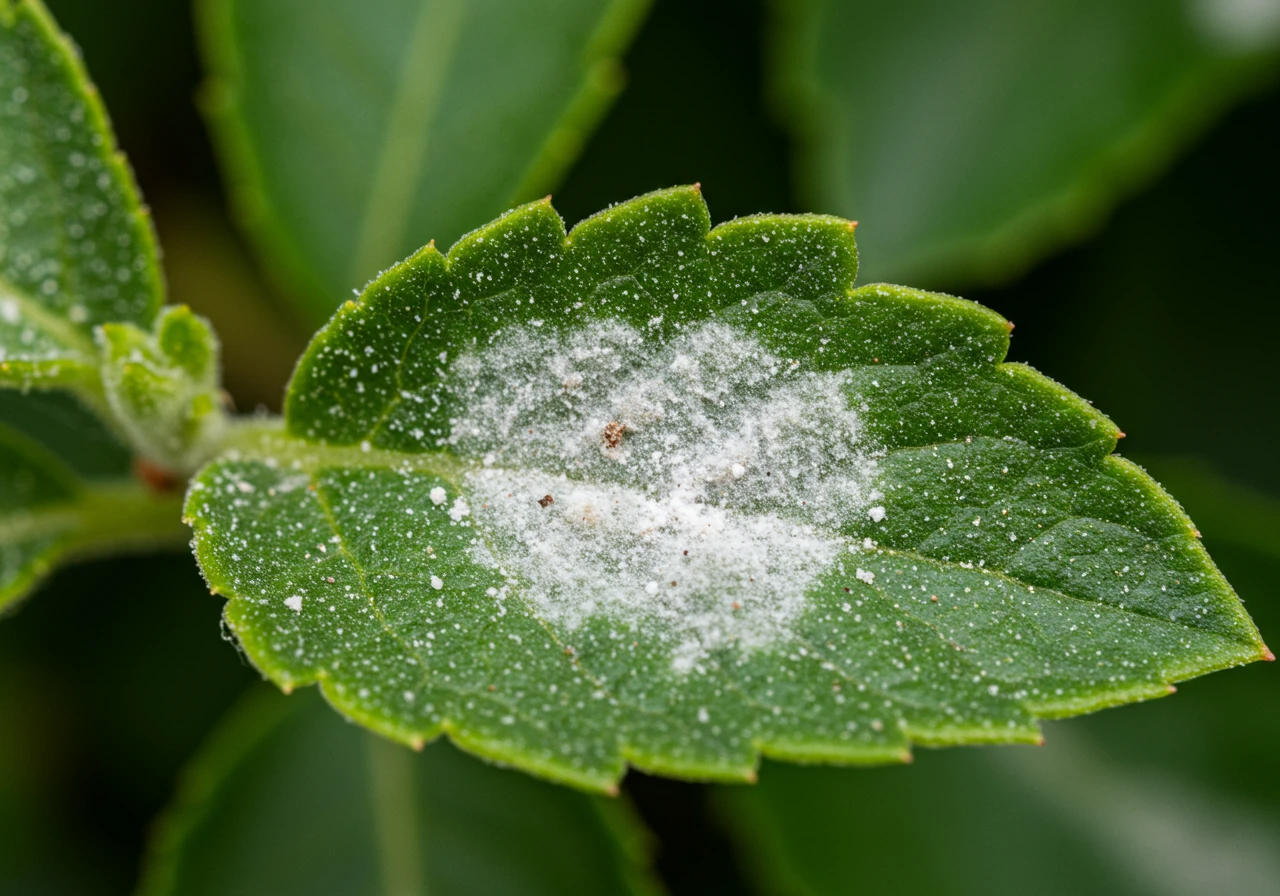
Ah, the joys of gardening in Ottawa! Beautiful blooms, tasty veggies... and sometimes, uninvited guests trying to crash the party. Yep, we're talking about pests and diseases – the garden gatecrashers that can turn your green oasis into a sad buffet. But don't worry, with a little know-how and vigilance, you can definitely keep these bad guys at bay!
Eagle Eyes: Your First Line of Defense
The absolute *best* defense is a good offense, and that means regular check-ups. Make it a habit to stroll through your garden frequently, maybe with your morning coffee. Look *closely* at your plants – under leaves, along stems, at the base. Spotting trouble early, like tiny aphids clustering on new growth or the first signs of powdery mildew (that white dusty stuff on leaves), makes it *so* much easier to manage. This vigilance is a core part of good consistent garden maintenance. If you're busy or unsure what to look for, a professional city garden maintenance service can be invaluable for early detection.
Meet the Usual Suspects
In Ottawa gardens, you might run into characters like:
- Aphids: Tiny sap-suckers, often green, black, or brown, usually on new growth.
- Japanese Beetles: Metallic green and copper beetles that skeletonize leaves (roses and beans are favourites).
- Slugs & Snails: Slimy critters enjoying cool, damp conditions, leaving holes and trails.
- Powdery Mildew: That white, dusty coating on leaves, especially common in humid weather.
- Fungal Leaf Spots: Various spots or blotches on leaves caused by fungi.
Fighting Smarter, Not Harder: Integrated Pest Management (IPM)
Forget reaching for the strongest spray immediately. IPM is a smarter, eco-friendlier approach that uses a combination of tactics:
- Cultural Controls: This starts right from the beginning! Choosing disease-resistant plant varieties during appropriate material selection gives you a head start. Proper spacing during thoughtful garden installation improves air circulation, discouraging fungal diseases. Keeping the garden clean and removing diseased leaves promptly also helps.
- Physical Controls: Hand-picking larger pests (like beetles), using strong water sprays for aphids, setting traps, or using barriers.
- Biological Controls: Encouraging beneficial insects (like ladybugs that eat aphids) or using specific microbial controls.
- Chemical Controls (Least-Toxic First): If needed, start with options like insecticidal soap or horticultural oil. Stronger chemicals are a last resort.
Tackling Japanese Beetles: A Mini-Guide
These shiny pests can be a real headache!
- Scout Early: Check susceptible plants daily starting in late June/early July.
- Hand-Pick: The best time is early morning when they're sluggish. Knock 'em into a bucket of soapy water. Ew, but effective!
- Traps? Maybe: Pheromone traps can attract *more* beetles to your yard than they catch. Use them far away from prized plants, if at all.
- Least-Toxic Sprays: Insecticidal soap or neem oil can help, especially on younger beetle stages, but follow directions carefully.
Community Watch in Russell & Embrun
Pests don't respect property lines! Sharing info with neighbours in communities like Russell or Embrun about outbreaks (especially invasive ones like the Emerald Ash Borer, learn more from the Invasive Species Centre) helps everyone stay prepared. Sometimes tackling a widespread issue requires a community effort, making everyone's garden healthier.
Dealing with pests and diseases is just part of gardening. By being proactive, using smart IPM strategies, and sometimes accepting that a few nibbled leaves are okay, you can keep your garden thriving. If problems become overwhelming, it might even be the catalyst for needed garden transformations to create a more resilient space. Stay watchful, and keep those bad guys on the run! Need help identifying a pest? Reach out to the experts on our Google My Business page!
Garden Task Focus (Example)
Visualizing typical summer garden priorities:
Summer Snips & Tucks: Pruning, Deadheading, and Tidying Up
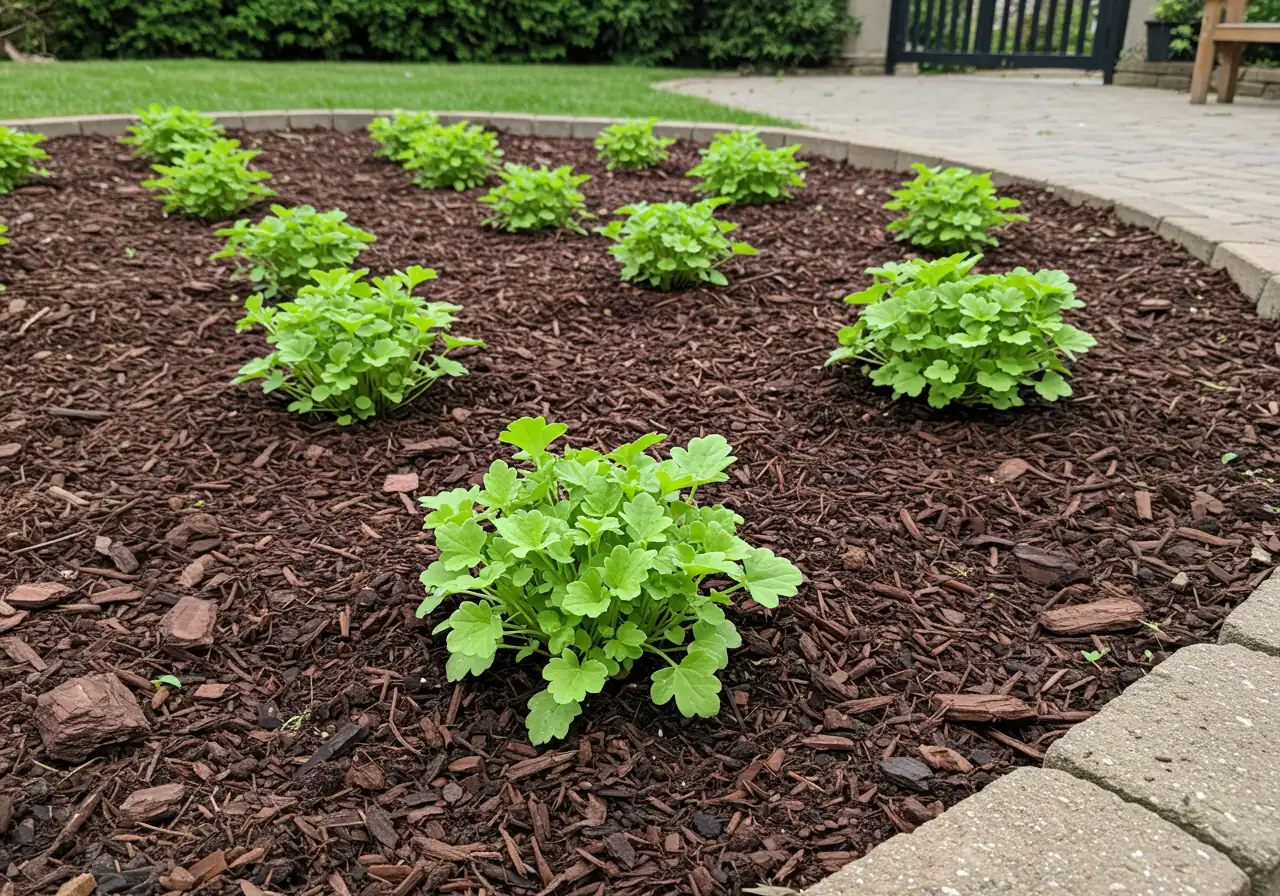
Okay, team garden! Summer's rolling along, and while we've covered watering and feeding, let's talk about keeping things looking *sharp*. A little mid-season haircut and tidy-up can make a world of difference, keeping plants vigorous and your Ottawa garden looking less like a jungle and more like intentional landscaping. Think of it as giving your garden a refreshing spa day!
First up: deadheading. This fancy term simply means snipping off spent flowers *before* they go to seed and decide their job is done. Why bother? You're essentially tricking the plant! By removing the old blooms (think petunias, zinnias, marigolds, cosmos), you encourage it to redirect energy into making *more* flowers instead of focusing on seed production. It keeps the colour coming longer and prevents things from looking sad and raggedy. Just pinch or snip the stem right below the faded flower head, down to the next set of leaves or bud if possible.
Now, summer pruning isn't the time for major reshaping or drastic cuts – save those big jobs for the dormant season (usually late fall or early spring). Summer pruning is more about light *maintenance* and quick fixes:
- Damage Control: Snip out any dead, diseased, or broken branches anytime you spot them. This prevents problems from spreading and keeps the plant looking neat.
- Light Shaping: Gently trim back any overly enthusiastic stems on shrubs or perennials that are getting leggy, blocking paths, or just looking unruly. A little trim can encourage bushier growth.
- What Not To Do: Avoid heavy pruning, especially on shrubs that set their flower buds for next year right after blooming this spring (like lilacs or forsythia). Also, try not to prune heavily during extreme heatwaves, as opening up the plant can cause stress and sunburn.
Proper pruning enhances plant health and overall garden appearance. Sometimes, just getting things tidied up is the first step towards visualizing bigger improvements, like envisioning potential garden transformations.
Don't underestimate the power of a good general tidy-up throughout the summer! Keep pulling those pesky weeds – they’re greedy thieves, stealing water, nutrients, and sunlight from your favourite plants. Check your mulch layer; topping it up if it’s looking thin helps retain precious soil moisture (especially important in areas like Winchester during dry spells) and keeps roots cooler. A clean garden bed not only looks much better but also discourages pests and diseases from setting up camp. Plus, keeping on top of weeding and debris removal makes future tasks like effective fall soil preparation much simpler. Maintaining neat edges and removing fallen leaves or petals contributes significantly to plant health and overall curb appeal, which is key whether it's your private oasis or contributing to the look of neighbourhood spaces maintained by a professional city property cleanup service.
If the summer weeds or overgrown areas feel like they've staged a coup, don't despair! Sometimes calling in reinforcements for a thorough Ottawa yard cleanup service or even focusing on specific problem areas with something like the Metcalf garden clean up service if you're nearby, can reset the stage beautifully. Check out our About Us page to learn more about our team.
These simple summer snips, tucks, and tidies are your secret weapon for keeping your garden looking its best and ensuring your plants are happy campers right through the season!
Summer Garden Care Timeline
Early Summer (June)
Focus on planting annuals, deep watering for establishment, applying mulch, and initial pest scouting (especially for aphids).
Mid Summer (July)
Peak heat! Vigilant watering, regular deadheading, Japanese beetle watch, light feeding for heavy bloomers, keep weeding!
Late Summer (August)
Continue watering & deadheading, start light pruning/tidying of tired perennials, monitor for powdery mildew, plan fall cleanup.
Ongoing Tasks
Consistent weeding, monitoring soil moisture, pest/disease checks, and enjoying the fruits (and flowers) of your labor!
Quick Summer Survival Secrets
Feeling the heat in your Ottawa garden? Don't let your plants wilt faster than your enthusiasm! Here are a few quick secrets to help your garden not just survive, but *thrive* through the sunny season, whether you're in Barrhaven or anywhere else in the city:
- Water Deeply, Not Daily: Forget the quick sprinkle! Soak the soil thoroughly 6-8 inches down when the top few inches feel dry. This encourages strong roots that can handle the heat. Aim for early morning watering sessions.
- Mulch Like a Superhero: Apply a 2-3 inch layer of organic mulch (like shredded bark or compost) around plants. It keeps roots cool, holds precious moisture in the soil, and suppresses weeds. Remember, mulch works best on clear ground, something easily achieved through professional Ottawa property cleanup services that leave your beds ready.
- Feed Wisely (Less is More in Heat): Avoid heavy fertilizing during heatwaves, which can stress plants. Use diluted liquid feed or slow-release options according to package directions. Ensure fertilizer reaches the soil, not weeds – a benefit often following a thorough city garden clean up service that clears the way.
- Stay Alert for Pests & Problems: Regularly check plants (especially under leaves!) for bugs or disease signs. Catching issues early makes them much easier to manage. A tidy space deters many issues, maintained easily with help from an Ottawa garden clean up service if you need a hand keeping things neat.
- Deadhead & Tidy Up: Snip off spent flowers (deadheading) to encourage more blooms. Trim any dead or damaged stems. Keeping the garden tidy prevents pests and makes everything look better! If tidying feels overwhelming, consider an expert Ottawa yard cleanup service to handle the bigger tasks.
- Know When to Call Backup: Feeling swamped by weeds or unsure how to tackle a specific problem? Sometimes a helping hand is the best survival secret. Don't hesitate to call for targeted assistance, like the help available from the dedicated Marionville garden clean up service if you're in that area, to get things back on track. You can always provide feedback on estimates to tailor services to your needs.
Ottawa Summer Gardening FAQs: Your Questions Answered!
Got questions about keeping your garden happy during those hot Ottawa summers? You're not alone! Here are some common queries we hear from gardeners across the city, from Richmond to right here.
Ottawa summers can scorch lawns! Brown patches often mean shallow roots struggling with heat or inconsistent watering. Ensure you're watering deeply (aim for 6 inches) early in the morning, but less often. Compacted soil or thick thatch can also block water. Aerating and adding compost can seriously boost your lawn's resilience against the heat. Consider professional lawn care services if issues persist.
Ugh, those shiny pests are garden party crashers! Early morning hand-picking into soapy water is your best non-chemical bet (wear gloves!). Sadly, those pheromone traps often attract *more* beetles to your yard than they catch. Focus on protecting your favourite plants first and consider protective netting if needed. Integrated pest management strategies can help minimize damage.
Containers, especially terracotta ones, bake in the Ottawa sun and dry out way faster than garden beds. They might need water daily, sometimes even twice on scorchers! Always check the soil moisture a few inches down first. Also, ensure pots have drainage holes – waterlogged roots can *look* like wilt but are actually drowning!
Oh, absolutely! Think of mulch as your garden's best friend in summer. A 2-3 inch layer keeps the soil significantly cooler, slashes water evaporation (saving you effort!), and smothers many weeds. Plus, it gives your landscaping beds a lovely, finished look. It's worth the effort, trust us! Our mulching and edging services can handle this task professionally.
Feeling overwhelmed happens to the best of us! Don't try to tackle it all at once. Pick one small section to start. Pull the biggest weeds first, then the smaller ones. Remove any obviously dead or spent plants. Sometimes, calling in help like a dedicated Marionville garden clean up service to clear a specific problem area can provide a much-needed reset and motivation boost.
That's a smart question! Clear communication is vital. Any professional landscaping or cleanup service should clearly outline the planned work, schedule, and costs before they begin. It’s always wise to understand the specifics, much like reviewing our own transparent service terms and conditions is encouraged. This ensures everyone is happy, like when a thorough Metcalf yard cleanup service gets things perfectly ready, prompting a satisfied client 'thank you'!
Conclusion: Enjoy a Lush Vernon Landscape All Summer Long
Okay, let's wrap this up! Keeping your Vernon garden looking like a green dream all summer isn't about luck; it's about staying one step ahead. As we've seen, a bit of smart watering, timely feeding, eagle-eyed pest patrol, and some simple tidying can make all the difference between 'uh oh' and 'oh wow!' Whether you're tending your patch here in Vernon, enjoying a larger space out in Greely, or anywhere across Ottawa, consistent, thoughtful garden care is your secret weapon against the summer sizzle. It prevents those frantic plant rescues and lets you actually kick back and enjoy your beautiful landscaping handiwork. You've totally got this!
Feeling like your garden could use a professional touch or just need a hand catching up? Don't let garden chores steal your summer fun! Give Clean Yards Ottawa a call today for everything from lawn care and garden maintenance to full landscaping transformations. We're here to help you achieve that lush landscape you deserve.
Got any summer survival tips of your own? Share them in the comments below – we love hearing from fellow Ottawa gardeners! (Note: Comments functionality not implemented in this standalone HTML).

